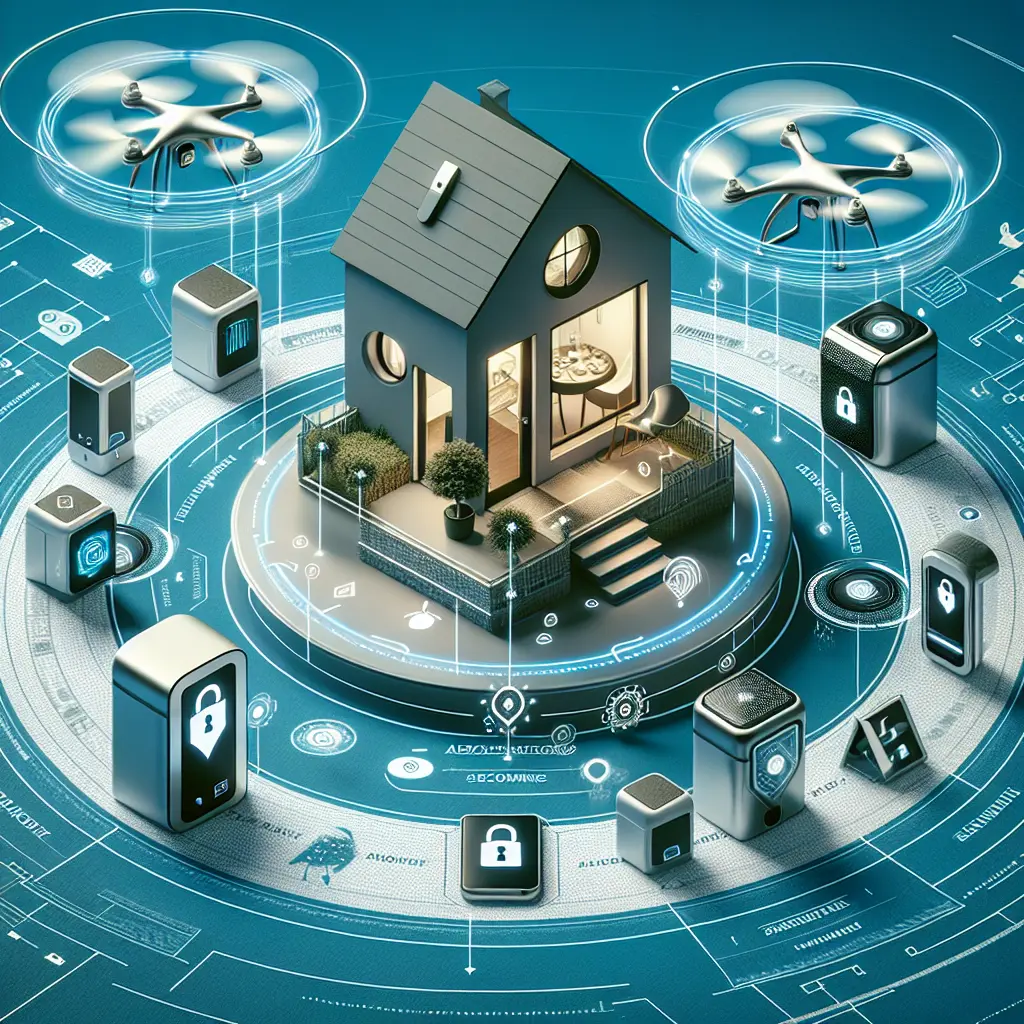
As technology advances, the concept of a "smart home" is no longer just about convenience; it’s also about enhancing security. The evolution of smart home security systems is particularly dynamic, integrating cutting-edge technologies such as AI, IoT, and biometrics to create environments that are not only smarter but safer. Let’s dive into the future of smart home security, touching on the latest innovations and how they are reshaping our approach to home safety.
Revolutionizing Home Security with Smart Technology
The future of home security is being shaped by the integration of AI home security systems, IoT security systems, and biometric security systems. These technologies are converging to create sophisticated, responsive environments that can predict, detect, and respond to potential threats with minimal human intervention.
Google's 4th-Gen Nest Learning Thermostat is a prime example of how AI and IoT are enhancing home security. With its ability to learn and adapt to your schedule and preferences, this device not only optimizes your home’s heating and cooling efficiency but also enhances security by detecting unusual patterns that could indicate a breach. The latest version is set to hit the markets soon, boasting improved specs and integration capabilities.
Affordable Tech Enhancements: Smart Security on a Budget
Budget-conscious consumers will be pleased to know that advancements in smart home security aren’t just for the affluent. The Amazon smart thermostat, for instance, was recently available for just $52 during an early Prime Day deal, putting smart security within reach for many. This device not only allows for remote home monitoring but also integrates seamlessly with other smart home devices to enhance overall security.
Integrated Security Solutions: A Seamless Approach
The trend towards integrated security solutions is becoming increasingly apparent. Google’s new $100 TV streamer is a testament to this, serving not only as a media device but also doubling as a smart home hub. This integration allows users to manage both their entertainment and security needs from a single point, emphasizing convenience and control.
Moreover, the latest Roomba goes beyond vacuuming; it can now wash its own mop and is compatible with Matter - the newest standard in smart home connectivity. This level of automation in routine tasks is closely tied to home automation security, ensuring that devices are operating efficiently and securely without constant human oversight.
Biometric and Voice-Activated Innovations
Facial recognition security and voice-activated security systems are setting new standards in personalized home security. These biometric security systems ensure that only authorized individuals can access secured areas, enhancing both safety and convenience.
Cybersecurity: Safeguarding Your Smart Home
As homes become smarter, they also become more connected, which raises valid concerns about smart home privacy and cybersecurity. Cybersecurity for smart homes has become a crucial field, focusing on protecting personal data and preventing unauthorized access to smart home networks. This aspect of smart home technology is continuously evolving, with new solutions being developed to counteract potential vulnerabilities.
Predictive Home Security: The Next Frontier
Predictive home security represents an exciting frontier in smart security technology. By analyzing data collected from smart home sensors and other sources, AI systems can predict and preempt potential security incidents. This not only enhances the effectiveness of home security systems but also improves their efficiency by reducing false alarms.
Smart Alarms, Smart Locks, and Home Security Apps
The proliferation of smart alarms and smart locks has contributed significantly to the advancement of home security. Coupled with comprehensive home security apps, these devices provide homeowners with real-time alerts and remote control capabilities, thereby enhancing overall security and responsiveness.
Monitoring Trends and Privacy Concerns
Remote home monitoring continues to be a significant trend in smart home security. Devices equipped with cameras and sensors can provide real-time updates to homeowners about what's happening in their homes, even when they're away. However, this also introduces privacy concerns, as the potential for hacking or data misuse remains a significant challenge.
The Impact of Recent Innovations
Recent innovations such as the Google 4th-Gen Nest Learning Thermostat and the new Roomba model illustrate how rapidly the field of smart home security is evolving. These devices not only streamline home management but also enhance the security measures of modern homes through seamless integration and advanced features.
As we look toward the future, it's clear that the landscape of home security is shifting from traditional alarm systems to more sophisticated, integrated, and predictive solutions. This transition not only promises enhanced efficiency and convenience but also poses new challenges in terms of privacy and cybersecurity.
In conclusion, the future of smart home security is rich with potential. As we continue to integrate advanced technologies like AI, biometrics, and IoT into our homes, we move closer to creating living spaces that are not just connected but are truly intelligent in their ability to protect and optimize themselves. For those intrigued by these advancements and looking to secure their homes intelligently, staying informed about these trends is more crucial than ever.
Warm regards, Vivian Chase